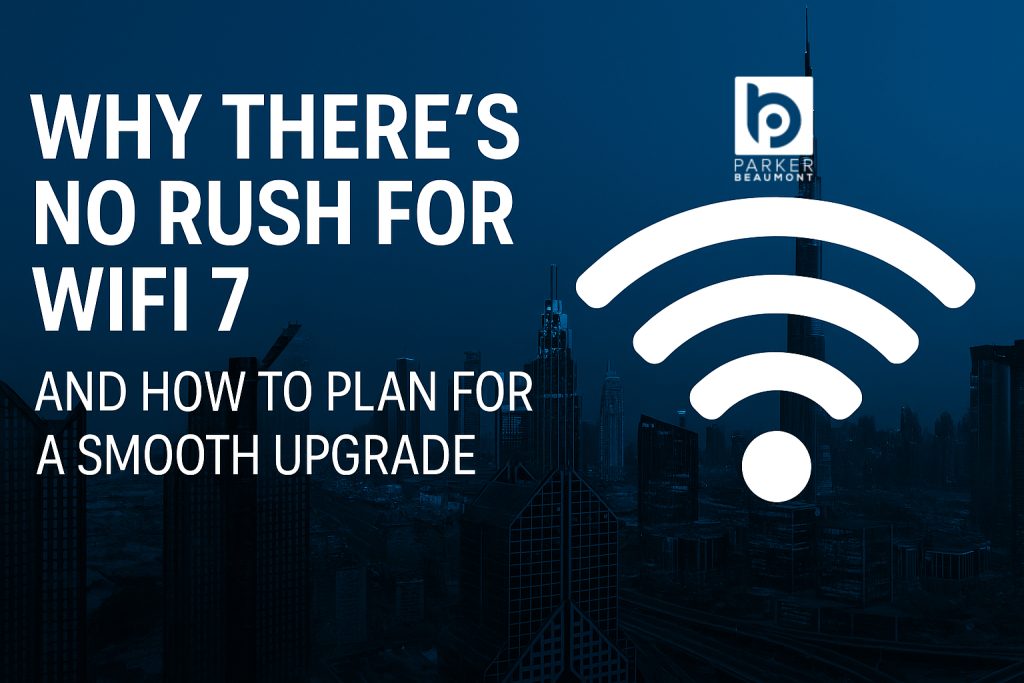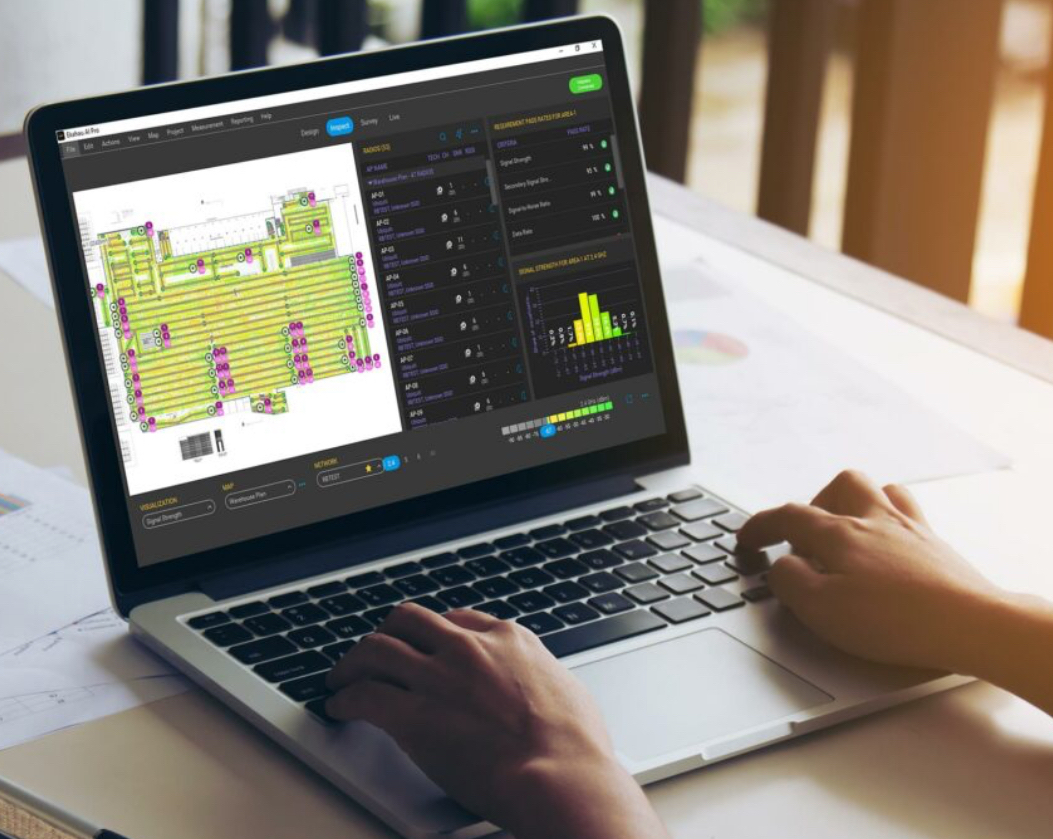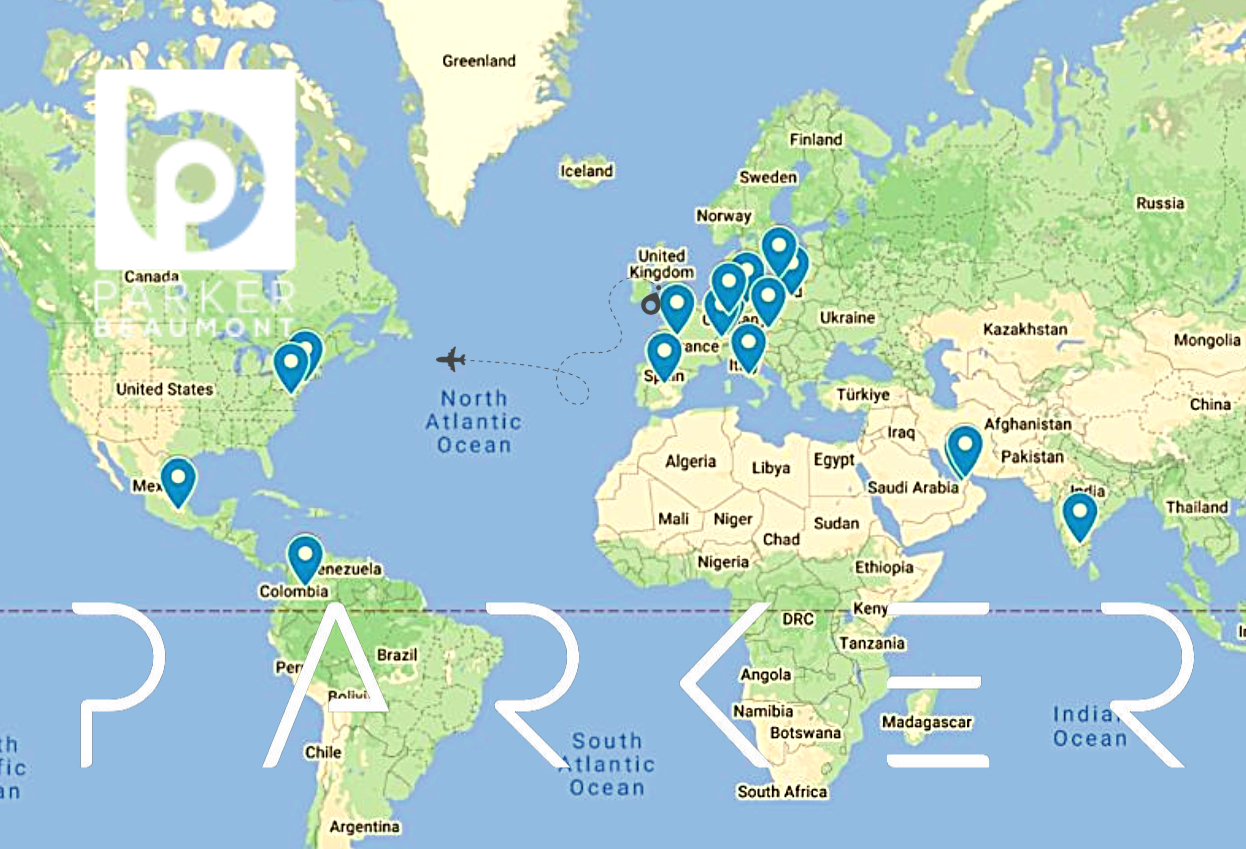
With the growing buzz around WiFi 7, many businesses are considering jumping straight into the next generation of wireless technology. But before making any hasty upgrades, it’s critical to step back and assess the real impact WiFi 7 will have on your network. Upgrading is more than speed; it requires a carefully planned approach to ensure long-term benefits and cost-effectiveness.
Understanding WiFi 7: What’s Changing?
WiFi 7 introduces faster speeds, lower latency, and better handling of high-density environments. However, the real-world benefits depend on how and when it is implemented. Unlike previous generational upgrades, adopting WiFi 7 is not as simple as swapping out access points (APs). There are key factors to consider first.
Coverage Considerations
One of the biggest misconceptions is that upgrading to WiFi 7 automatically improves coverage. While it operates in the 6GHz band, which delivers higher speeds and reduced congestion, the trade-off is shorter than the 5GHz and 2.4GHz frequencies. Your existing AP layout may no longer provide full coverage, requiring additional APs or strategic repositioning to maintain performance.
That said, not all WiFi 7 devices require 6GHz. Some certified devices still operate on existing bands, meaning businesses can upgrade in stages without fully committing to new spectrum usage.
Device Compatibility & WPA3 Requirements
Upgrading to WiFi 7 doesn’t instantly boost performance across your network unless your devices support it. Many enterprise laptops, tablets, and IoT devices still operate on WiFi 6 or earlier, meaning the real impact of an upgrade will be limited in the short term. Businesses moving too soon may not see the full benefits until their current APs reach the end of life and client devices catch up.
Additionally, an often-overlooked factor is WPA3 security requirements.
To unlock key WiFi 7 features, networks must transition from WPA2 to WPA3, a shift that may require security updates across your entire ecosystem.
The Need for Proper Network Planning
A successful WiFi 7 rollout isn’t just about replacing APs; it requires a well-structured implementation plan. Before making the move, businesses should:
- Conduct Wireless Surveys – Mapping coverage areas ensures optimised placement of new APs, avoiding unnecessary costs and performance gaps.
- Assess Device Readiness - Ensure critical business devices are compatible with WiFi 7 and fully utilise its capabilities.
- Plan for a Phased Rollout – Avoid impulsive investments by upgrading gradually, aligning with infrastructure lifecycles.
- Prepare for WPA3 Transition – Ensure network security is ready for the shift to WPA3, a requirement for future-proofing your wireless environment.
How Ekahau Supports WiFi 7 Planning and Deployment
At Parker Beaumont, we rely on Ekahau, a leading wireless network planning and troubleshooting platform, to support our WiFi 7 upgrade projects. Ekahau technology enables our team to:
- Perform detailed site surveys that provide real-time network performance and signal coverage visibility.
- Simulate and plan future WiFi 7 deployments, accounting for 6GHz propagation, access point placement, and coverage optimisation.
- Analyze capacity and interference to ensure your network is designed for speed, real-world usage, and scalability.
Using Ekahau allows us to make data-driven decisions, reduce guesswork, and ensure that every access point is placed for maximum effectiveness. This technology is essential in planning scalable, high-performance networks ready for WiFi 7.
The Bottom Line: Don’t Upgrade Without a Plan
WiFi 7 brings exciting advancements, but rushing into an upgrade without a strategy can lead to unnecessary costs and underutilised infrastructure. Instead of reacting to the hype, businesses should take a phased, data-driven approach backed by wireless site surveys and device assessments.
At Parker Beaumont, we specialise in future-proofing wireless networks through strategic rollouts and expert network planning. If you’re considering WiFi 7, let’s discuss the right path for your business, one that ensures maximum return on investment and a seamless transition.







